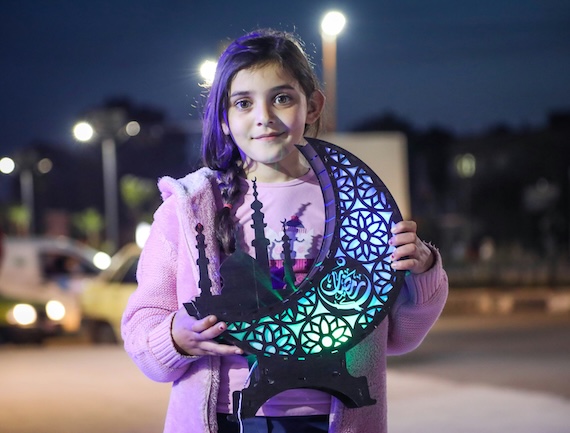By Kinda Alsamara, The University of Queensland; Eleanor Gordon, Monash University, and Elliot Dolan-Evans, Monash University
(The Conversation) – The end of the oppressive Assad regime in Syria in late 2024 has been broadly welcomed on the global stage – underscored by the fact the United States and European Union have now lifted sanctions against the country.
However, women have been marginalised by Syria’s new leadership. That’s a problem for Syrian women, of course, but it also puts at risk prospects for sustainable peace in Syria.
A growing body of research, including our own, shows a direct correlation between gender equality and peace.
Syria now stands at a crossroads. Will it ensure women’s meaningful participation and follow a path to peace? Or will things head in the other direction?
This is more urgent than ever. Failure to grapple with women’s rights in Syria risks plunging the nation further into extremist violence.
Women excluded both before and after Assad’s rule
After decades in power, the harsh Assad regime was overthrown late last year by rebels led by Sunni Islamist militant group Hayat Tahrir al-Sham.
But women – who were marginalised politically and economically under Assad – continue to be systematically excluded from decision-making in the new government.
This is even though women played an essential role in the Syrian revolution. They organised protests and advocated for rights (often at great personal risk).
They endured sacrifices such as imprisonment, torture, disappearance and displacement.
Yet, only one woman was appointed to Syria’s immediate post-Assad caretaker government. She didn’t get a ministerial title.
The caretaker government spokesman reportedly suggested women’s “biological and physiological nature” makes them unsuitable for certain government roles.
Reports allege the man initially appointed as Syria’s new minister of justice previously oversaw executions of women accused of being sex workers.
Some Syrian activists are concerned Hayat Tahrir al-Sham will enforce a gendered and conservative interpretation of Islamic law, which prevailed in its previous stronghold of Idlib (a city in northwestern Syria).
Limited roles for women
A key moment came when the new Syrian government held a “national dialogue conference” earlier this year. This conference was to establish a forward-looking “political identity” for Syria.
Of the seven-member conference preparatory committee, only two were women.
There was no representation on the preparatory committee from several of Syria’s diverse communities, including Kurdish, Alawite and Druze groups.
Most members had strong ties with Hayat Tahrir al-Sham or other Islamist factions.
About 200 of the 1,000 delegates at the conference were women. However, their input in legislative and security committees was minimal.
Only one of 18 conference recommendations referred (in a limited way) to women.
Following the national dialogue conference, new Syrian President Ahmed Hussein al-Sharaa signed into force a constitutional declaration that set a five-year transition period and established the interim government.
Senior figures in the new government described the declaration as guaranteeing women’s political and economic rights.
Yet only one of Syria’s 23 ministers is a woman: Hind Kabawat, appointed as minister of social affairs and labour. This “soft” portfolio is commonly associated with gendered expectations around care and welfare.
Key ministries were allocated to al-Sharaa’s all-male long-time comrades from Hayat Tahrir al-Sham’s base in Idlib.
Change is possible
A just and sustainable peace requires proactive measures to integrate women into leadership roles in Syria.
Change is possible. For example, constitutional mandates could guarantee minimum representation for women in ministerial leadership and judicial positions, which would better reflect the diversity of Syrian society.
Independent mechanisms could be established to investigate and address gender-based injustices. This would need to provide accountability for past abuses and protect women’s rights under the post-Assad system.
As we have previously noted, there cannot be a “collective forgetting” of crimes Syrian women experienced in the past.
Economic empowerment initiatives would also help foster women’s financial independence and participation in public life.

File. Photo of girl in Deraa Syria, 2022, by Mahmoud Sulaiman on Unsplash
Public awareness campaigns could also highlight women’s contributions to the revolution and their essential role in nation-building.
Syria at a crossroads
With the recent lifting of sanctions by the US and EU, and ongoing regional instability globally, Syria stands at a crossroads.
The G7 Summit in May 2025 emphasised the global community’s renewed focus on women’s participation in peace processes.
Influential middle-power countries can play a key role by reviewing sanctions and tying humanitarian aid to the promotion of human rights, gender inclusion and pluralistic governance.![]()
Kinda Alsamara, Lecturer in the School of Languages and Cultures, The University of Queensland; Eleanor Gordon, Senior Lecturer in Politics and International Relations, Monash University, and Elliot Dolan-Evans, Lecturer in Law, Monash University
This article is republished from The Conversation under a Creative Commons license. Read the original article.

 © 2026 All Rights Reserved
© 2026 All Rights Reserved